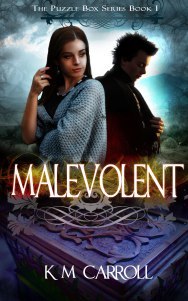K.M. Carroll's Blog, page 32
November 30, 2016
Dragons and fairies – interview with Ralene Burke
Today I’m interviewing Ralene Burke, author of the fantasy novel Bellanok. I just finished reading it, and it was a fun, gentle romp through a fantasyland with a heaping helping of faith. Here’s the interview!
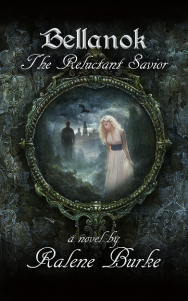
1. Welcome to the blog, Ralene! Thanks for joining us! First, tell us about your book. What genre/age group is it for? And what’s the story about?
Bellanok is a contemporary fantasy geared toward readers in their 20s. Although, I’ve heard from readers of all ages, including YA readers, who have enjoyed the story. Here’s the blurb:
A haven for myths and legends . . . until evil discovers a way in.
With evil darkening the mountains to the north, the fairy queen, Fauna, must journey from the island realm of Bellanok to the modern world to find the man the Creator appointed to save their kingdom. A man she has been dreaming of her whole life.
Brian is a down-on-his-luck pastor on the verge of giving up on God. He’s tired and frustrated–a failure. No sooner does he make a decision that jeopardizes his career than an unusual blonde woman shows up and tries to convince him he is some kind of savior.
Fauna must open Brian’s eyes to a different reality, and Brian needs to embrace the haven’s secrets. If neither of them succeeds, Bellanok will succumb to evil and the world will lose all trace of innocence.
2. What made you want to write this particular story?
It all started with a prayer. I was asking God for guidance on where to go after finishing edits on a WIP. The first chapter of Bellanok popped into my head. After a couple of days with that chapter demanding to be written, I sat down and cranked it out. That seemed to alleviate the urgency while I finished the current WIP, but the story was still building in the back of my mind. Once I had time, I was able to start cranking out the story.
3. What was your favorite part to write?
Any part with Roman in it? Seriously, Roman was my favorite character to write—mostly because he’s just so different from me. But he says many things that I wish I had the guts to say. Ha!
4. What was the hardest part to write?
I can’t tell you that without revealing a major plot point in the story. I will say, bring out the tissues! The second hardest part to write was the end. For several scenes in the final battles, Fauna and Brian are in separate places with different dangers around them.
5. This book was originally written in serial format. What are the pros and cons of writing that way?
Ah, yes, the serial project was an interesting experience. I had fun with it and would totally try to do it again (though I would change a few things).
Pros: The serial format allowed me to keep putting my name/story out in front of readers with each release, thus helping to build a following more quickly.
The serial forced me to think on my feet and make a cohesive story without being able to go back and change things. So it was a great exercise for stretching my writing muscles.
Cons: Ideally, each part of the serial would have released about 6-8 weeks apart. Due to life, that didn’t happen. So while the serial format did help to build a following, it wasn’t as effective as it should have been.
I don’t like not being able to go back to previous parts and change details or plot lines. Of course, that could be solved by writing the whole thing first—but that would have taken too long!
6. The theme of Bellanok is a journey back into faith. Why is this important to you?
It’s important to me because much of Brian’s journey is mine as well. I’ve always been a believer, but it wasn’t until my 20s that I reached a time when my faith was challenged, where I felt that I just couldn’t connect with God.
While it didn’t take me journeying to a mystical island to save unicorns to find that connection, God did have to bring me to my knees before I was able to see the problems.
I think many people go through the same kind of challenges—each unique to the person—but with the same struggles and desperation. Bellanok helps readers to sort through the coinciding emotions and thoughts while escaping with Brian to fight the battle and save the world.
Thank you for joining us on the blog today, Ralene! Best of luck with Bellanok and all future books!
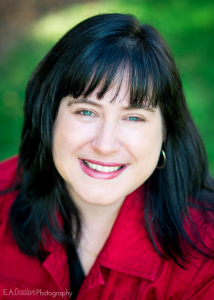
RALENE BURKE BIO:
Whether she’s wielding a fantasy writer’s pen, a freelance editor’s sword, or a social media wand, Ralene Burke always has her head in some dreamer’s world. And her goal is to help everyone SHINE BEYOND! She has worked for a variety of groups, including Realm Makers, The Christian PEN, Kentucky Christian Writers Conference, and as an editor for several freelance clients. Her first novel, Bellanok, is available on Amazon!
When her head’s not in the publishing world, she is wife to a veteran and homeschooling mama to their three kids. Her Pinterest board would have you believe she is a master chef, excellent seamstress, and all around crafty diva. If she only had the time . . .
You can also find her on Facebook, Twitter, or at her website.


November 21, 2016
Thankful for birthdays
Thanksgiving is this week, and I’m so thankful to be here, now, than last month, packing to move and cleaning like crazy.
The two youngest have their birthdays this week. Of course, cupcakes were in order, and we had them right after dinner.
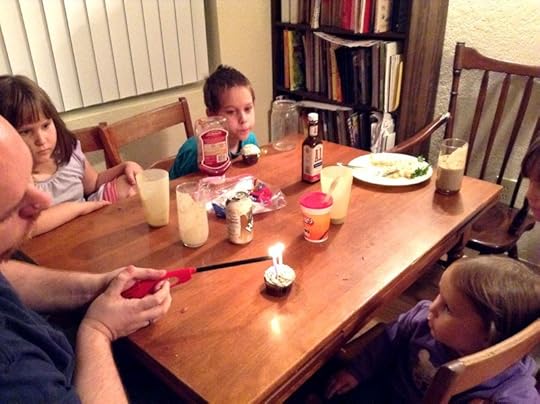 After a capital burger dinner, daddy lights up three cupcake candles.
After a capital burger dinner, daddy lights up three cupcake candles.
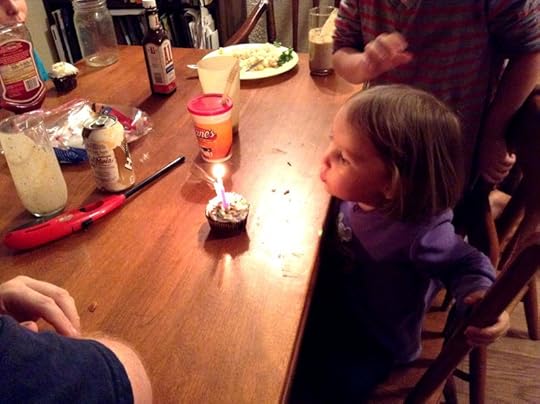 Blowing out the candles!
Blowing out the candles!
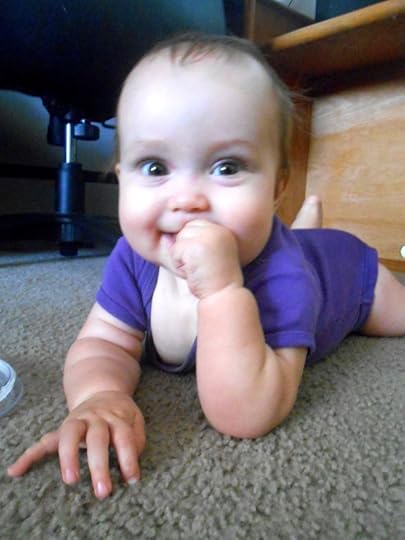 Fat baby who turns 1 this week!
Fat baby who turns 1 this week!So many good things have happened that I’m thankful for. We’ve moved to a beautiful city. We have more room. My hubby is getting lots of hours, and he likes his co-workers. (That’s a big one.) I’m just thankful that we can go into the holidays without worrying about where we’re going to live. God has taken such good care of us.


November 16, 2016
I love velociraptors
You know how in my previous post, I talked about trying to figure out how to adult awesomely? And how I failed at it?
Well, I sort of rediscovered how much I love the Jurassic Park velociraptors. All I did was look up t-shirts, and …
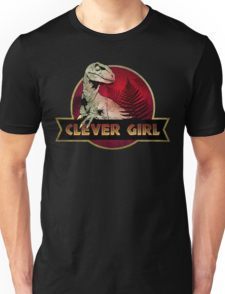



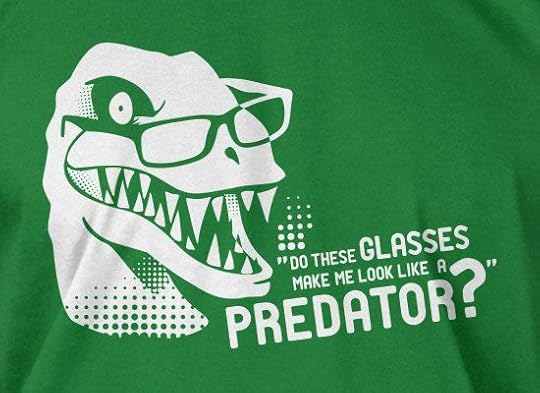 This is me. Especially with my glasses on.
This is me. Especially with my glasses on.
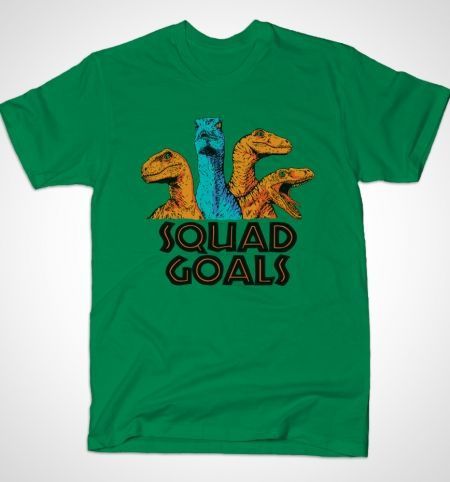
Okay, so they’re not ALL raptors, but they’re all very cool. My hubby wants me to stream games with him, and I need something fun to wear on camera, right?
I have to also not suck at games, but one thing at a time.


November 13, 2016
How I fail at awesome adulting
A few months ago, I decided that I wanted to start playing games with my husband again. Videogames, board games, card games. We met and bonded over our shared love of games, but as the babies have kept coming, I haven’t got to play them much.
We started off with Tiny Epic Galaxies, which I enjoyed very much. But he has lots more games that I don’t know anything about.
As I have been thinking how far behind I am with new releases and games, I ran across these articles about awesome adulting. Or what happens when you’ve poured so much of yourself into your family that you have no individuality left. No likes or dislikes. No favorite places or hobbies. The articles are about how reclaiming that part of yourself can enrich your family, not subtract from it.
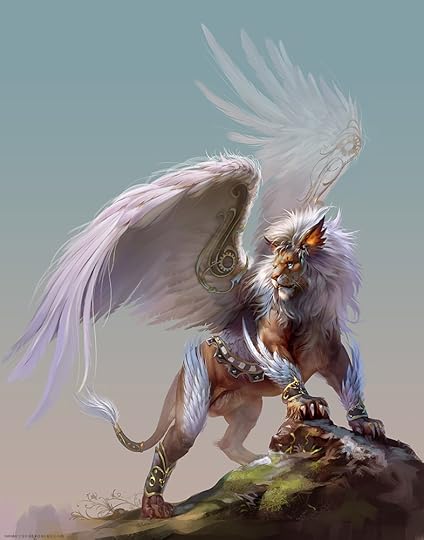 Lion by Youchenghong
Lion by YouchenghongSo I started thinking. When it comes to games, I haven’t let myself play much of anything in about seven years. I get a month of World of Warcraft now and then. I played some Stardew Valley with the kids. I play Pokemon sometimes. But that’s been it. Mostly I watch other people play games. I have no likes or dislikes, no opinions. Only fading memories of games that I used to enjoy.
When I told my husband this, he was overjoyed that I want to rediscover this. In particular, he was happy that I need him to help me. I hadn’t realized how that whole aspect of our relationship had been shut down. It’s kind of sad.
I did start running a little premade Dungeons and Dragons campaign for the kids, with premade characters. Right now they’re solving a murder mystery, and loving it. But I still want to play with my husband, too.
I wrote this much of the blog at the end of September. Then we got our notice that we had to move. Here I am, six weeks later, moved, and I still want to learn to adult awesomely. I’m trying to play games, trying to write, trying to draw, trying to do the things that not only give me joy, but enrich others, too. As Donna Otto says, my first ministry is to my husband. That means games.
I think that will be my goal for 2017. As we head into the end of 2016, it’s a good time to think about these things.
What about you? Do you adult awesomely? Or are you like me, and pretty much struggling to keep your head above water?
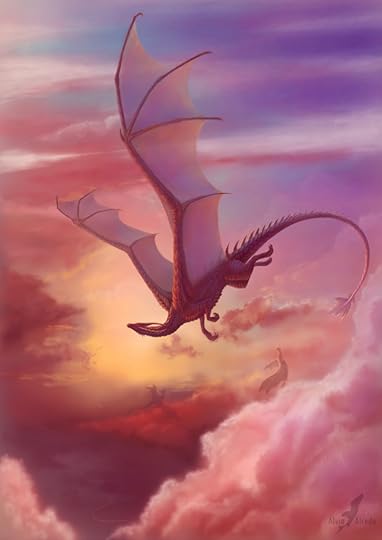 Close to Heaven by AlviaAlcedo
Close to Heaven by AlviaAlcedo

November 4, 2016
Gone in 30 days
So I didn’t blog for most of October. A few astute friends knew that we were moving under short notice. Well, here’s the story:
We’ve lived in an apartment in Phoenix, Arizona for three years. Our lease came up for renewal in September. We signed a new one and went about our business.
Then the last week in September, we found a notice on our door. It went something like this.
“Your lease has been declined because you are over occupancy.” (I’d had a baby last year.) “You have until October 30th to GTFO. Have a nice day.”
After the initial panic died down, we sighed and figured it was a good thing. We had five kids in a two-bedroom apartment. We really did need to move up to a three-bedroom.
We started hunting. And we found that the housing situation in Phoenix is a joke. So many people want to live there, and they’re willing to pay anything to do it, that most apartments are either super expensive or have years-long waiting lists.
While my hubby has a good job, he doesn’t quite make as much as the apartments want. We hit this wall over and over. A realtor finally gave us a list of low-income apartments to try.
Talk about a low point. I looked them all up. With the exception of two (which had massive waiting lists), low income housing is packed into a single giant tenement building. Very little landscaping. Just a big ugly box to cram as many people into as possible.
I have five kids, all of whom like to play outside. Living in a place like that would be a prison sentence for all of us. Not to mention the waiting lists.
We despaired. I cried a lot. We prayed desperately. And suddenly a thought popped into Ryan’s head: why not try Tucson?
 Mount Lemmon panoramic from Wikimedia Commons
Mount Lemmon panoramic from Wikimedia CommonsWe started hunting apartments in Tucson. It’s not having quite as much of a boom as Phoenix is, and the income requirement wasn’t quite as high. We found a 3-bedroom pretty quickly, and with some mathematical shenanigans, managed to make the numbers work so they would let us in.
We drove down a couple of times, and each time we liked Tuscon better. Ryan has lived there a few times, and took us around to some of his old haunts. We also took the kids to a park with a man made lake and let them throw food to the ducks. The mountains are gorgeous. It was like balm to my soul to look at mountains and water again. I’m from CA and have missed both.
 Mount Lemon Sky Island Parkway from Wikimedia Commons
Mount Lemon Sky Island Parkway from Wikimedia CommonsWe began packing and cleaning and donating stuff we never use.
Among other things, the ceiling in our bathroom fell in and had to be fixed. During intensive packing. Yeah, that was fun.
Then we rented the truck and started loading.
We had planned to load the truck in a day, drive to Tuscon, and unload in a day. In reality, it took us two days to load and two days to unload. It was just Ryan, me, and the kids. While the kids helped when they could, they’re simply not capable of hauling around boxes and furniture.
On the second day of loading the truck, we had planned to be packed and on the road by noon. The new place’s office closed at 5 PM, and we had to be there in time to get the keys.
Noon came and went. Then one. Then two. We worked harder and harder, and our stuff seemed to multiply. Why do we have so much junk, anyway?
At three, we decided that cleaning the apartment could wait until the next day or so. We hurled the last few things into the truck and high-tailed it out of there at 3:15.
It’s a two-hour drive from Phoenix to Tuscon. We screamed down there in the truck and car. Ryan had called the office and left a message to say that we were running late, and could they wait for us. So we came screeching into the parking lot at 5:30. Thank heavens, the manager was still in the office, though she was ready to leave. We got the keys. We got into our brand new apartment.
And it was too dark to unpack anything. For example, beds.
We bought a Papa John’s pizza to bake in our new oven for dinner. But we didn’t have any plates or forks to eat it with. I pulled it out of the oven with two shirts wrapped around my hands. I had a box cutter in my pocket from packing. It cut pizza all right. I also cut chunks from the cardboard plate beneath it to use as makeshift plates. We turned over a box to use as a table.
Then we (attempted) to sleep on the floor. It was a strange, uncomfortable night.
The next day, we were so tired from loading stuff the day before, as well as not sleeping, that we only managed to unload half the truck. We were assembling beds at 7 PM. That night we actually slept.
The next day Ryan went back to Phoenix to clean the old apartment, finish paperwork, and turn in the keys. I was faced with the daunting task of unloading the rest of the truck by myself.
I had been reading the Song of the Summer King books to the kids. That morning, I told them that we must become Nameless if we were going to finish the job–just like how Shard the griffin made the long flight over the sea on the advice of an albatross.
[image error] “Now this.” Windwalker looked forward again, and Shard watched him. “This long flight, my lord, comes at a price. You cannot think. You cannot think, ‘Oh, how tired I am.’”
“Now this.” Windwalker looked forward again, and Shard watched him. “This long flight, my lord, comes at a price. You cannot think. You cannot think, ‘Oh, how tired I am.’”
Windwalker stretched his wings, then settled them into a glide again, and Shard imitated him. Stars rippled above and the moon bathed them and the top of the storm clouds in silver.
“You cannot think, ‘Oh, how far I have to go.’ You cannot think at all. For this long flight, you must give up yourself. To journey across the windward sea, you must let go of your name, and become part of the sky.”
“My name?”
“But it will come back to you. In time. Son of Tyr and Tor. You cannot truly forget, you who parted the storm, and named me. I don’t think you can forget.”
“You don’t think? But are you sure?” Shard had forgotten himself once, briefly, after almost drowning in the sea. Witless, he had climbed to safety on pure instinct, and woken to remember himself just before meeting Stigr for the first time.
“Trust you will remember. Too many thoughts will weaken you. You must be a bit of wind and sky, like me.” Windwalker stared ahead, unconcerned. Shard watched him, breathless fear crawling forward. “Remember only to follow me, brother of the sky. Remember only that.”
…
“You are wind,” Windwalker intoned. “You are feather and bone, and hunger, and thirst. And wind.”
Shard focused on his feathers, loosing a breath. I am wind. I am feather and bone.
I am wind. Feather and bone.
Wind. Feather. Bone.
Flight and blood and bone. Anything else is death.
Hunger, thirst and hunt.
Flight, feather and wind was life.
Blood. Feather.
And wind.
I had that stinking truck unloaded by noon. So it worked.
Then I had to unpack a mountain of boxes in order to make room for furniture. I’m a bit OCD–I like everything neatly in its place. The chaos of moving is torture for me.
Ryan completed everything on his end, and we unpacked for two days. I didn’t do anything else–I just unpacked for hours on end.
Once everything was done and arranged, I was so tired that all I could do was sit in a chair and stare. “It’s Nanowrimo!” the Internet exclaimed. “Also the election is nuts! Did you hear the latest?”
I sort of stared at the Internet without caring. We just came through our own personal apocalypse. I don’t have the energy to care about big scary things. I barely have the strength to cook dinner and sweep the floor.
So that’s where I vanished to for the entire month of October. Hopefully life and regular blogging will resume now.
 Mount Lemmon: butterfly trail via Wikimedia Commons
Mount Lemmon: butterfly trail via Wikimedia Commons

October 9, 2016
Just fall pictures
I keep wanting to blog about something or other, but words escape me. Stress, bewilderment at our crazy election, and so on–so I just want to focus on simple things. Like enjoying fall.
All these pictures grabbed off deviantart. There’s lots more fall artwork there!













October 1, 2016
How humanity makes us human
I’ve been knee-deep in revisions for months now, it seems like. The third Malevolent book, Malicious, is developing in all kinds of directions I didn’t foresee in the first draft. Heck, the first draft, I didn’t know what the plot was until I was almost finished. The plan is to release books 2 (Malcontent) and 3 (Malicious) a month apart, but I don’t know if I can do it.
So as I’m chewing on the various aspects of monsters and what makes them monstrous, I keep asking myself about what it means to be truly human. I’m beta-reading a book right now about a kid who turns into a vampire, and it raises the same question. What separates us from the monsters?
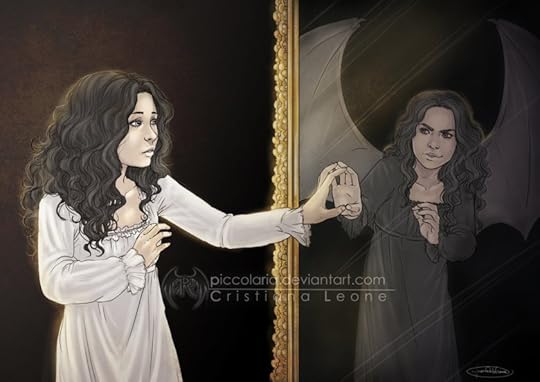 The Stranger in the Mirror by ChristianaLeone
The Stranger in the Mirror by ChristianaLeoneIt’s interesting to see this definition of humanity:
humaneness; benevolence.
“he praised them for their standards of humanity, care, and dignity”
synonyms: compassion, brotherly love, fraternity, fellow feeling, philanthropy, humaneness, kindness, consideration, understanding, sympathy, tolerance
Isn’t it interesting that the higher virtues are the pinnacle of being human? When you talk about “the vampire seemed so human”, you don’t mean that he had four limbs and a face. You refer to his benevolent nature.
On the flipside, we also have the word inhuman:
lacking human qualities of compassion and mercy; cruel and barbaric.
synonyms: cruel, harsh, inhumane, brutal, callous, sadistic, severe, savage, vicious, barbaric
This is where you get monsters–the werewolves and vampires, the evil kings and wizards of fantasy, the evil aliens of science fiction.
So, to be truly human, one must exercise the virtues. To be a monster, one exercises the base nature. And it’s WAY easier to be a monster than it is to be a human. That struggle between the flesh and the Spirit. The Apostle Paul’s cry of, “Why do I do the things I don’t want to do, and don’t do the things that I want to do?”
As I’m chewing through these books, they constantly raise questions like this. If a dangerous monster protects the girl he loves, is he humane? And if a human being whose job is to protect people from the monsters suddenly begins destroying the people she should protect, is she the true monster?
I think that’s one reason people like the paranormal romance genre. We love the contradiction of the all-powerful monster who gentles himself in the presence of the one he loves. We want to see the transformative power of love and redemption. I mean, think about how people adore anti-heroes. We just love the semi-bad guy and root for him to join the heroes.
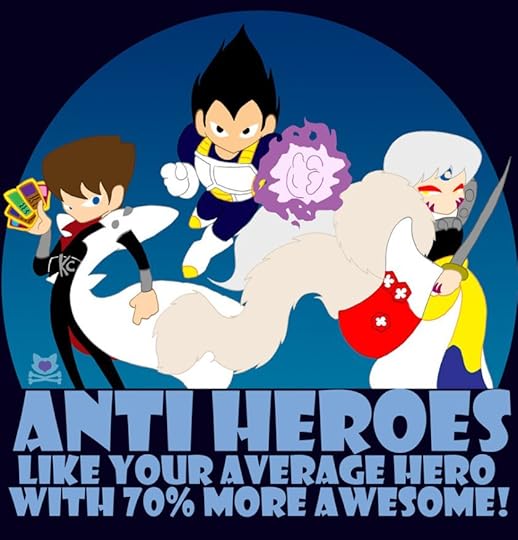 Anti Heroes by FuryKitten
Anti Heroes by FuryKittenSo, really, our humanity (our virtues) is what makes us human. It’s possible to be a member of the human race and be utterly inhuman. It’s also possible to not be human (like with an alien) and yet be completely humane.
What do you think? Is this something you’ve ever wrestled with in your reading or writing?


September 21, 2016
Malcontent sneak peek and Kindle Unlimited freebies
I’m participating in a promo this week! Paranormal romance and urban fantasy, all free on Kindle Unlimited. There’s some really good stuff in there. So I’m entering my paranormal romance Malevolent! Click the pretty below to check it out!
Read for free on Kindle Unlimited! Infomercial GET!
Anyway, Malevolent has been out for more than a year now. I would have had the sequel out already, but I kind of had a baby in November, and that always sets back all artistic endeavors by six months. Anyway! Book 2, Malcontent, is in final revisions and awaiting the jaded eye of a professional editor. I thought my loyal readers might like to read the first chapter and see how Mal and Libby are coping with the fallout after the events of book 1.
Libby
“You’re going to have to tell your parents eventually, Libby,” Mal said.
It was a hot August morning, and the sky was that brassy white color, like the lid on a casserole dish. Mal was gently wheeling a beehive on a dolly to its new position near the blueberry field. He’d poured so much smoke into the bees that they were comatose.
I leaned against a fence post and folded my arms. “I know what’s wrong with me. You know what’s wrong with me. I don’t need a psychiatric evaluation.” I tried to sound defiant, but inside I was quivering with terror.
“That’s why you’ll have to tell them,” Mal grunted, wrestling with the heavy hive. He wouldn’t let me help. “I advised you to tell them as soon as it happened, remember.”
His soul inside of me was like a cavern of alien feelings. I tried to keep myself separate from it, but when I got upset, he bled into me like sugar into coffee. Right now, I could feel his calm pity and exasperation, and it annoyed me.
“How can you be so calm?” I snapped. “I’m going to have some doctor trying to figure out if I’m crazy or not!”
Mal straightened, wiped his forehead, and looked at me. While he was as thin and vampire-looking as ever, the California sun had given him a healthy tan to cover his creepy paleness. His hazel eyes still seemed to change colors, though–probably a trick of the light. Right now they were more green than hazel.
“It is the logical course of action after all you’ve been through. Your condition is … unstable.” He faced the hive and bowed his head a moment. A deep shame flowed from his soul into mine.
“It’s not your fault,” I murmured. “I’m the one who decided to grab your soul.”
And forgetting things. And having memories that weren’t mine. But it didn’t mean I was crazy. Right?
 Model reference for Libby
Model reference for LibbyHe was silent a moment, then gave me a haggard look. “I would say that I wish I had never gotten involved, but then you would be dead, or worse.”
It was the or worse that still haunted me. I tried to think of something to say, drew a blank, and nodded instead. Then I checked the time on my smartphone. “I’d better go.”
He nodded and lifted a gloved hand in farewell. His shame persisted inside me as I walked the couple of acres back to the house.
Our farm was called Blossom Ranch, because when Dad bought the place, the almond orchards were in full bloom. We had several acres of them, and right now their plentiful green leaves held a bountiful crop of nuts. I had to hurry back from the doctor because today was the first day of harvest, and I didn’t want to miss it.
The air conditioners droned outside our farmhouse, the music of summer in the Central Valley. It sounded like ice cream, corn on the cob, and swimming. I circled the yard and paused to look through the wooden fence at my border collie, Suki. She flattened her ears and smiled at me, pleading.
“Sorry, girl,” I told her, “dogs aren’t allowed at the doctor. You can ride with me later.”
She whined, not placated.
In the driveway sat my new four-wheel drive pickup. Well, it was new to me, anyway. Its white paint was splattered with mud from where I’d taken it out in the fields on test drives. I’d blown my life savings on it back in June. Every dime I made around the farm went into the gas tank. Oh, the roar of the engine and the way it leaped free of the driveway onto the road was so satisfying. It made the drive downtown to the doctor’s almost fun.
Arvin is a little farming community in the south end of the San Joaquin valley. Community–no–teeny town was more like it. Still, we had our shopping center and a movie theater, and we were only an hour or two from LA in one direction and Bakersfield in the other.
The psychiatrist’s office was one of many in a nondescript complex. They must have kept the air conditioning on constantly, because my feet in my sandals began to freeze as I was checking in. As I sat in the tiny waiting area, alone, my fingers and nose chilled, too. The blazing parking lot began to beckon with its promise of warmth.
Finally they called me in to see the doctor. I was expecting one of those half-couches, where I would sit and look at pictures of ink blots. Instead it was an ordinary doctor’s office with an examining table, a stethoscope hanging on the wall, and an ugly landscape painting.
The doctor was a sharp-faced woman with no makeup, her hair pulled back in a severe ponytail. She gave me an appraising look as she entered. “I’m Dr. Wilson. I’ll be accessing you today.”
I forced a smile, even though my heart was trying to escape my rib cage. “Hi.”
She took my blood pressure and listened to my heartbeat. “You’re stressed, Elizabeth. What’s the matter?”
“I’ve–I’ve never been to a shrink before.” I swallowed. “Are you going to zap me with tasers?”
Dr. Wilson smiled, her fierce expression warming toward humanity. “That sort of treatment has been out of date for decades. I’m only going to ask a few questions today, okay?”
I nodded and squeezed my hands together in my lap. There was a lot of stuff I couldn’t tell a doctor–or anyone.
“Your records show that you spent the last school year sick with Valley Fever. How do you feel now?”
It wasn’t Valley Fever, but I couldn’t tell her that. “Fine. Those new meds worked great.”
Mal’s magic honey had worked better.
She wrote something on her clipboard. “Have you been under any stress recently?”
Other than carrying around Mal’s soul, and waiting for the Necromancer to return?
“Uh, a little. It’s harvest time, and I’ve been looking at colleges for next year.”
In this case, college was code for training under the Marchers. After spending six months in bed, I still wasn’t back up to my old physical strength. My parents had agreed to give me a year off school in order to get my health back, and I had opted to enroll in the Marchers’ athletic program. That was how the Marchers taught people to use magic.
“Do you suffer from any sort of depression or mood swings?”
I considered. “Not really.” My mood jumped around near Mal because I felt whatever he felt. Far away, though, his soul was a quiet cavern inside me.
“Any nightmares?”
“Yeah.” The word slipped out before I could stop it.
“How often?”
“Oh, a few every week.” It was hard not to have nightmares when you kept seeing the Necromancer tear the soul out of your best friend. Often he was holding up a human skull, and I was trying not to look into the eye sockets. I’d be twisting my head away, eyes shut tight, and wake up gasping, fighting the blankets.
“How severe?”
“They wake me up.” I smiled and shrugged, like it was no big deal.
Dr. Wilson wrote for a long time. Extra dread sank into my stomach. She couldn’t tell my parents anything–patient confidentiality and all that–but what if she decided I ought to be committed to a hospital?
“Any changes in your appetite?”
It seemed a harmless enough question. “Since I got well, I like eating.” I tugged at the waistband of my shorts. “Look, I fit my clothes again.” The skeletal look is popular with girls my age, but dieting was never my thing. You try skipping a meal after spending hours hoeing weeds in a blueberry field.
Dr. Wilson smiled and made a note. “How is your memory?”
“Fine.”
“No blank spots, no forgetfulness?”
I hesitated. I was forgetting things more and more–stupid stuff, like the ending to a movie I’d seen a jillion times, or the way to a friend’s house. Sometimes I’d look around and feel like a stranger in an unknown place, whether it was my bedroom, the almond orchard, or a random street in town.
“Kind of.” I looked at my folded hands rather than at the doctor’s face. I knew she was watching me. The memory thing was why my folks had made me this appointment.
“Can you be more specific?”
I drew a breath and gave her a defiant look. “It’s because we were playing Settlers of Catan, and I couldn’t remember what resources I was getting from where. The board stopped making sense. Then when I said I wanted to quit, Mom asked why, and I said …”
I had said, “Don’t cross the salt, or you forfeit your soul,” only I don’t remember saying it.
“…so, yeah, something’s up with my memory.”
Dr. Wilson wrote this down with the sort of poker face a person uses when they smell Starbucks at four in the afternoon and say no thank you, they’re not hungry, but you know they’re planning to ditch you for a double half-caf soy cappuccino.
“Are you in a relationship right now?”
My relationship with Mal wasn’t what you’d call normal. “I guess so, yeah.”
 Model reference for Mal
Model reference for MalShe studied me, probably to see if I was lying. “Are you physically involved?”
“Heck no.” I’d kissed Mal once–after that, the soul problem made it too dangerous. At the most, we sometimes held hands. “He’s big into purity, and so am I.”
She followed this up with a series of questions that made me squirm with embarrassment and answer, “No,” a lot.
After that were done. Dr. Wilson tucked her pen into the top of the clipboard. “Well, Miss Stockton, you do seem fairly normal for someone barely recovered from Valley Fever. However, you do exhibit symptoms of trauma. I can prescribe some anti-anxiety medication, if you like.”
I shook my head. “No thanks. It’s not that bad.”
She turned a page on her clipboard. “Disorientation is a side effect of the medication you were taking–are you aware of this?”
Relief flooded me. “Really?”
She shrugged. “It could be. If the problems persist, or if you develop other issues, contact us immediately. The sooner we treat you, the sooner we can correct the symptoms.” She gave me a searching look. “Are you sure you have nothing else to add?”
No way was she dragging a confession out of me. “Nothing I can think of.”
“All right, then we’re finished.”
I escaped to the safety of my truck soon afterward, the blessed heat restoring my circulation at once. That wasn’t so bad, I reflected as I roared toward home. I had a plausible excuse for the memory thing and had been otherwise pronounced normal.
Mal and I knew what was really wrong with me, but I’d struggle through somehow. As long as I didn’t forget how to work the conditioner today, I’d be fine.


September 14, 2016
The Bestseller Code (or why everyone wants high concept)
In my circulation around the internet, I keep hearing about this book called the Bestseller Code. It’s not out yet, but a chapter of it is available for free on Amazon. Ever curious, I grabbed it and read it.
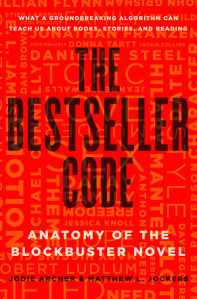
Here’s the summary:
This sneak peek teaser – featuring literary giants John Grisham and Danielle Steele – from Chapter 2 of The Bestseller Code, a groundbreaking book about what a computer algorithm can teach us about blockbuster books, stories, and reading, reveals the importance of topic and theme in bestselling fiction according to percentages assigned by the what the authors refer to as the “bestseller-ometer.”
Although 55,000 novels are published every year, only about 200 hit the lists, a commercial success rate of less than half a percent. When the computer was asked to “blindly” select the most likely bestsellers out 5000 books published over the past thirty years based only on theme, it discovered two possible candidates: The Accident by Danielle Steel and The Associate by John Grisham.
The computer recognized quantifiable patterns in their seemingly opposite, but undeniably successful writing careers with legal thrillers and romance. In Chapter 2, Archer and Jockers analyze this data and divulge the most and least likely to best sell topics and themes in fiction with a human discussion of the “why” behind these results.
The Bestseller Code is big-idea book about the relationship between creativity and technology. At heart it is a celebration of books for readers and writers—a compelling investigation into how successful writing works.
Intriguing idea, right? How can a computer algorithm pick out bestsellers?
Well, when you dig into it, it’s really stuff that readers know intuitively, but never really articulated. Here’s some excerpts:
If we compute an average proportion for each topic in all the books by each of these authors, it certainly seems that Steel and Grisham learned something from the old maxim “write what you know.” The author who dreamed of baseball but then became an attorney has “Lawyers and the Law” as his most prevalent theme, followed by “American Team Sports.” Steel, who has been through five marriages, raised nine children and lost one, writes mostly about “Domestic Life,” “Love,” and “Maternal Roles.”
Roughly a third of all the paragraphs Grisham has ever written deal directly with the legal system, and similarly Steel has given almost an exact mathematical third of her pages over the years to the theme of domestic life, or even more specifically “time spent inside the home.”
Grisham and Steel each have only one signature theme, not two, that takes up a whole third (on average) of each of their novels. This likely helps with their branding. All the many other topics each writer employs are used in tiny percentages. Grisham’s second-most-used topic across his canon is American sports, but it is the subject of only 4 percent of his pages, and this average is no doubt as large as it is because it gets a big bump from his non-legal thriller Calico Joe— a book that is entirely set in a world of baseball. Many of Grisham’s other secondary themes are no big surprise: money (3 percent), cops (2 percent), and government intelligence (2 percent).
The less immediately obvious topic, at almost 4 percent of all of Grisham’s pages, is a topic we call “everyday moments.” The name is deliberately vague and undramatic. The scenes in which this topic shows up prominently may involve two people chatting, or sitting on a sofa watching TV, or walking down the street. Not much is going on but day-to-day living. Its presence as number three in Grisham, after law and sports, is important if only to indicate a writer who is aware of pace. Everyday interactions between characters are there in order to vary the pace of the drama and avoid melodrama. It is the kind of topic no one would likely think they read for, but if these scenes that offer breath and reflection are totally absent, a reader is almost guaranteed to complain.
There are other minor topics in Grisham, though, ones that we would have been less likely to guess immediately. These topics, with similar proportions to cops and courts, deal with people in their domestic environments (a top topic for Steel), kids enjoying summer at home (with words like “porch” and “bike”), scenes about relationships (also very important in Steel), and family.
Steel’s top few themes appear to put her characters and those of Grisham in very different worlds. After time spent in the home— a topic whose specific nouns suggest the home of a typical nuclear family— she gives 5 percent more of her storytelling to a similar theme we called “family time.” The nouns in this word group suggest a family at home, engaged in everyday activities: dinner, conversation, rest, love, weekends. So far it is all quite low drama. Her third most used topic, though, deals with hospitals and medical care. This topic is made up of words like “nurses,” “doctors,” “ambulance,” “emergency,” and “accident.” It suggests not the long-term stay of a patient with a chronic disease, but instead the sudden and unexpected event that threatens the domestic contentment of Steel’s primary themes.
There’s a lot more in this vein–analyzing the topics in the proportions. It boils down to “people like reading about people interacting in casual, friendly, intimate ways.” Oh, but sex doesn’t sell.
If we take a cross section of almost five thousand novels— five hundred of which are bestsellers and the rest are not— and measure the presence of five hundred different themes across all of them, then the proportion of the whole taken up by sex is just about a thousandth of a percent. If you then measure the content of bestselling novels (and we will explain how this is done in just a moment), this fraction for sex goes down to 0.0009 percent.
It’s hard to believe. Who would have thought that sex does not sell? We tell people and still they do not believe us. But the truth is this: sex, or perhaps more precisely erotica, sells, and it sells in notable quantities, but only within a niche market. Titles within that genre rarely break out enough to win the attention of the mainstream reading market that creates bestsellers.
We know what you are thinking: “What about Fifty Shades of Grey?” Well, that novel (or those novels if you count the whole series) is one quite rare example of an erotic story that hit the lists. … Contrary to what you might expect given the prominence of sex in TV, movies, and the media, the U.S. reading public public of the past thirty years has demonstrated a preference for other topics.
The algorithm actually came up with a list of things that didn’t sell–at least, not on that snapshot of the New York Times Bestseller list. This is where all my spec fic friends are going to cry foul.
Two notable sets of under-performing topics are all things fantastical and otherworldly. Made-up languages, fantasy creatures, settings that don’t exist, space battles, and starships are all statistically far less likely to succeed on a mass scale than the topics of realism in today’s market.
Still, in the many topics that suggest a realistic world, there are some that are winners and others that are losers. Among the good, the popular, and (for writers) the go-for-its: marriage, death, taxes (yes, really). Also technologies— preferably modern and vaguely threatening technologies— funerals, guns, doctors, work, schools, presidents, newspapers, kids, moms, and the media.
By contrast, among the bad and unpopular, we already have sex, drugs, and rock and roll. To that add seduction, making love, the body described in any terms other than in pain or at a crime scene. (These latter two bodily experiences, readers seem to quite enjoy.) No also to cigarettes and alcohol, the gods, big emotions like passionate love and desperate grief, revolutions, wheeling and dealing, existential or philosophical sojourns, dinner parties, playing cards, very dressed up women, and dancing. (Sorry.) Firearms and the FBI beat fun and frivolity by a considerable percentage. The reading public prefers to see the stock market described more so than the human face. It likes a laboratory over a church, spirituality over religion, and college more than partying. And, when it comes to that one, big, perennially important question, the readers are clear in their preference for dogs and not cats.
Ouch!
This is where I start thinking about the data we’ve been presented. Of course, this is all based on one chapter of a very deep book, and I’m no statistician. But I am a reader, and I have a few theories about why these books sell.
First off, for the lack of speculative fiction in the algorithm–this was based off a snapshot of the 2014 NYT bestseller list. This was, I believe, right after the NYT changed its rules to keep indie published books off the list. (Otherwise it would have been pretty much dominated by picture books.)
The indie market has been killing it in speculative fiction. I mean, the Martian was indie–Andy Weir wrote it on his blog and dumped it to Amazon for a buck afterward. Traditional publishers have declared Urban Fantasy a dead genre. Meanwhile, on Amazon, UF is one of the big hot genres. Watch out, Jim Butcher, here comes Domino Finn and a bunch of others, out to steal your crown.
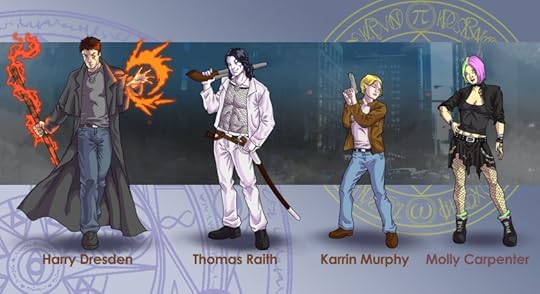 The Dresden Files characters by wildcard24
The Dresden Files characters by wildcard24Science fiction, especially space opera, its going bonkers in the indie realm. So is epic fantasy–dragons, wizards, magic, all that jazz. Over on the kboards forum, writers of speculative regularly report being able to live off their earnings in those genres.
Now comes the speculation. This study found a few big things.
An author spends 1/3rd of the book solidly focused on genre tropes. If it’s a Grisham, people want law shenanigans. If it’s romance, they want relationships. If it’s fantasy, they want the fantastic. If it’s space opera, they want space ships and aliens. If it’s Harry Potter, they want Hogwarts.
This is all fine and dandy. But what separates the winners from the rest of the pack is that “human interactions” thing. We don’t read Harry Potter for the epic battles against the forces of Voldemort–we want to hang out with the Weasleys. “We’re not dumb. We know our names are Gred and Forge.”
In the Expanse trilogy by Corey, the heroes spend a LOT of time hanging out in the canteen of the ship, drinking bad space-coffee and debating what to do. There’s a ton of human interaction along the way.
After Harry Potter came out, I read a lot of the copycats that launched around the same time. They were all big on the action and weak on the heartwarming, cozy human interaction moments. They lacked staying power as a result. Out of the whole pack, I think only Percy Jackson managed to rise to popularity.
The Mitford books by Jan Karon were big on human interaction. Each book is pretty much “Father Tim wanders around a little town and talks to people”. There will always be a mystery to solve or an over-arching conflict to face, but at its heart, it’s just a cozy story. I think that’s why it sold like crazy.
Human interactions, marriage, death, taxes, moms, kids, and all the rest of things that feature in bestsellers–those are all what we call high concept. That is, something that everybody can relate to. We all have families. We all have laundry and taxes and death in the family.
So, basically, if you want to write a book that people want to read, you have to write about people dealing with common topics. But the fun of it is setting it in different genres. (In the second Expanse book, one of the main characters is trying to find his kidnapped daughter. So he crowdfunds his search. The resulting donations and trolling he gets ring absolutely true, whether here on Earth or roaming the moons of Saturn.)
As a reader, I know that I love the quiet moments where the characters spend time with other characters. Seems that I’m not the only one.
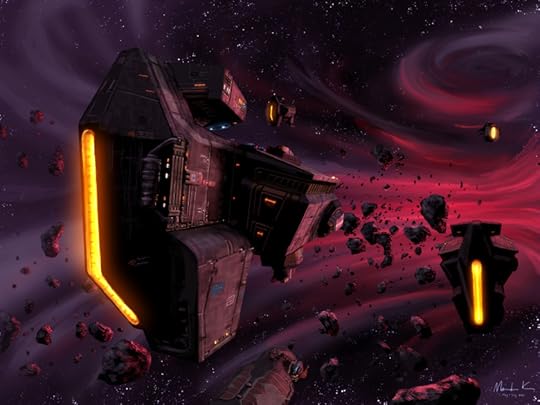 HW: Hushan capital ships by MK01
HW: Hushan capital ships by MK01

September 5, 2016
How my scariest villain was the least visible one
Back in my teenaged fanfic days, I decided to write a sprawling epic story. A story that basically crossed Digimon with World War 2. A huge conflict that would put our heroes against impossible odds. I wrote a massive war novel in the world of Sonic the Hedgehog.
In battle animes like Digimon, there’s a progression to the power flow. The heroes fight a bad guy. They get stronger. They find the bad guy’s commander. They defeat him. They get stronger. They find the next rank of bad guy, and on up it goes. By the end, the heroes and villain are throwing galaxies at each other.
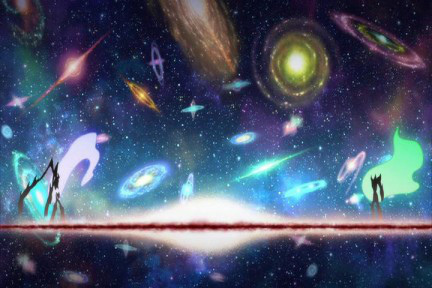
If I wanted my heroes to get strong, I needed a stronger bad guy. I needed a scary one. So I went to the scariest villain I had read at that time: Sauron from Lord of the Rings.
Sauron has no screen time. He speaks exactly 1 line. Yet he is absolutely terrifying. As I studied the mechanics of how this worked, I realized that it broke down like this:
Heroes can read Sauron’s mind
His Eye is felt
His influence is felt
His armies are seen (and they’re bad)
His Nazgul are seen (and they’re bad)
He controls a freaking volcano
His power can corrupt people from far away (the Ring)
He can alter the weather
The heroes talk about him with dread and horror
Yet the closest we ever get to seeing him is Pippin’s account of looking into the palantir. Sauron is never described.
After LOTR, I attempted to read Wheel of Time. I successfully bored my way through book 2, The Great Hunt. In the end of that book, Rand faces off with the evil skeletal bad guy who is basically Sauron.
And you know what? It wasn’t scary. It was sort of dumb. Kind of like the first Hulk movie. Once he was on screen, the villain’s threat diminished to that of a cackling cartoon character.
The LOTR movies suffered from the same problem. Sauron is reduced to a searching spotlight outside a prison complex. Not really … you know … menacing.
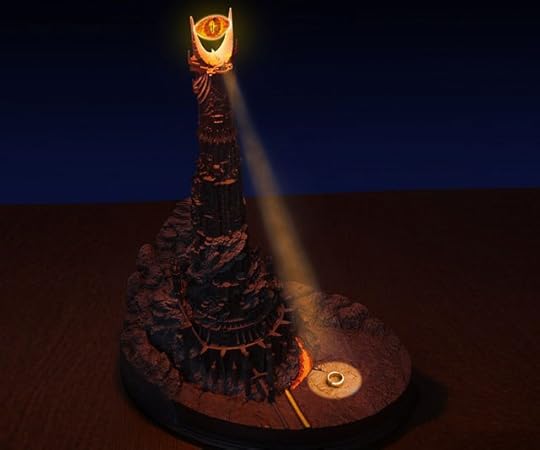 The Eye of Sauron Desk Lamp from dudeiwantthat.com
The Eye of Sauron Desk Lamp from dudeiwantthat.comSo, if I wanted to make my Big Bad scary, I’d have to keep his screen time to a minimum.
So along came Leviathan. He was based on the characteristics from Job 41.
Can you draw out Leviathan with a fishhook? Or press down his tongue with a cord? 2 “Can you put a rope in his nose Or pierce his jaw with a hook? 3 “Will he make many supplications to you, Or will he speak to you soft words? Lay your hand on him; Remember the battle; you will not do it again!
9 “Who can strip off his outer armor? Who can come within his double mail? 14 “Who can open the doors of his face? Around his teeth there is terror. “Nothing on earth is like him, One made without fear. 34 “He looks on everything that is high; He is king over all the sons of pride.”
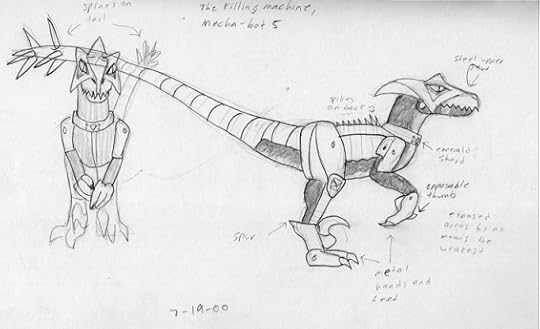
Like Sauron, he was invincible, except for one tiny weakness. He was this self-healing nanite-based android with a super-computer brain. He made himself into the Borg King and began assimilating the entire world into his cyborg army.
I used my observations about Sauron and followed them closely. Leviathan appeared at the beginning of the story, at his birth, and the end, at his death. The rest of the book is about the heroes fighting his armies, dealing with refugees, and rescuing each other from cyborg assimilation.
Levi, himself, remains off-screen. It builds this growing, horrible dread the longer the story goes. And the more enormous, horrible things that happen, the more his reputation grows. The scarier he becomes. And we haven’t seen him in hundreds of pages.
It’s AWESOME.
And it must have worked, because tons of people begged permission to use Levi in their own stories. I read as many as I could find. Everyone wanted their characters to kill him, too. But nobody had figured out how to make him as scary as I did–they gave him too much screen time.
When Levi is on screen, he’s just a robot dinosaur. Oh, he’s strong and menacing enough. But he doesn’t have the presence of doom that he achieves by staying off-camera.
Now, this won’t work for all villains. Lots of times the villain must have screen time because he’s just as interesting as the hero, with his own journey. Or he’s the hero’s best friend, even. I personally love my villains and show them as much as possible.
But sometimes you just want that backstage mastermind kind of villain who stays out of sight. The really scary one. I think Unbreakable said it best:





